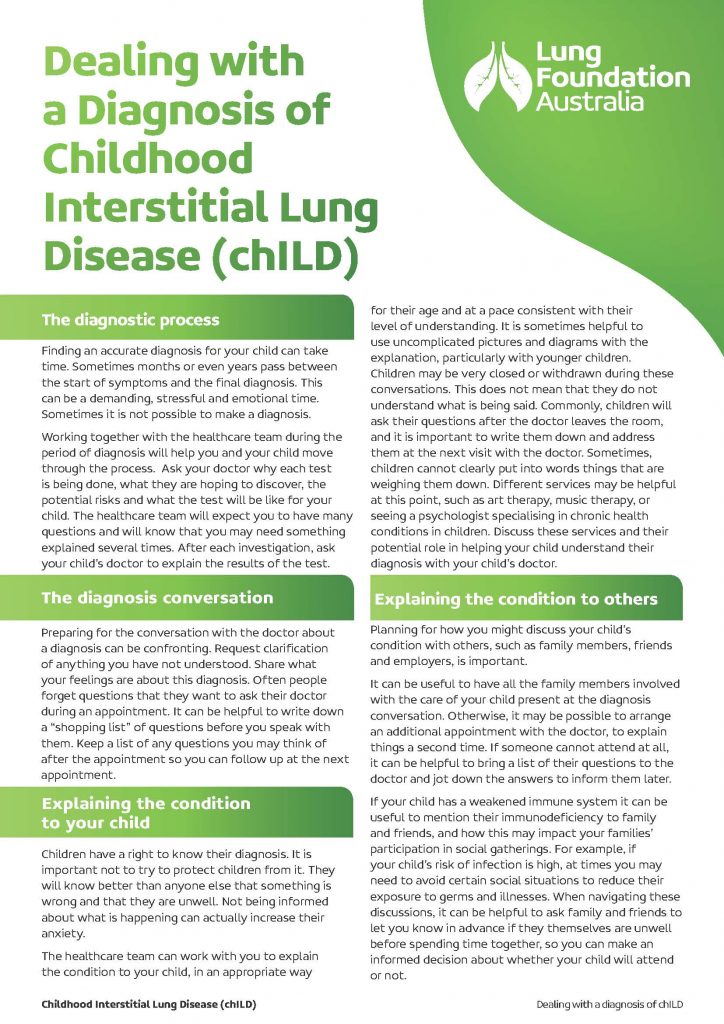Childhood Interstitial Lung Disease (chILD) is a rare and complex condition that affects children’s lung function, often requiring a lengthy and challenging diagnostic process. This fact sheet is designed to support parents, caregivers, and families as they navigate the emotional and practical aspects of receiving a chILD diagnosis. It provides clear, compassionate guidance on working with healthcare teams, understanding test results, and preparing for discussions with doctors, ensuring families are equipped with the knowledge they need. chILD refers to a group of rare lung disorders that impair oxygen absorption in the lungs, leading to breathing difficulties and reduced oxygen supply to other organs. Early diagnosis is crucial, as symptoms can vary in severity and worsen over time. Recognising early signs and seeking medical advice can improve outcomes and quality of life for affected children. It’s important to know each child experiences chILD differently. Some cases are mild with symptoms that slowly improve over time without treatment. In other cases, symptoms can remain severe and may lead to other complications and more complex treatments.
The resource emphasises the importance of open communication, helping parents explain the condition to their child in an age-appropriate manner while also addressing concerns from siblings, extended family, and even employers. It highlights strategies for managing social interactions, especially when a child has a weakened immune system, ensuring that families can make informed decisions about gatherings and day-to-day activities.
Recognising the emotional toll of a chILD diagnosis, the fact sheet explores the common feelings parents and caregivers may experience, such as grief, fear, guilt, and frustration. It offers practical coping strategies, from seeking professional counselling and support groups to leveraging hospital services such as social work, art therapy, and music therapy. The document also provides self-care advice, reminding parents that looking after their own well-being is crucial for providing the best care to their child.
Additionally, this resource connects families with Lung Foundation Australia and other support networks, offering access to information services, peer support, and educational resources. Designed as a practical and emotional guide, it empowers families with the tools and support needed to manage the challenges of a chILD diagnosis while maintaining a sense of stability and hope.
Was this page helpful?
Good job! Please give your positive feedback
How could we improve this post? Please Help us.
